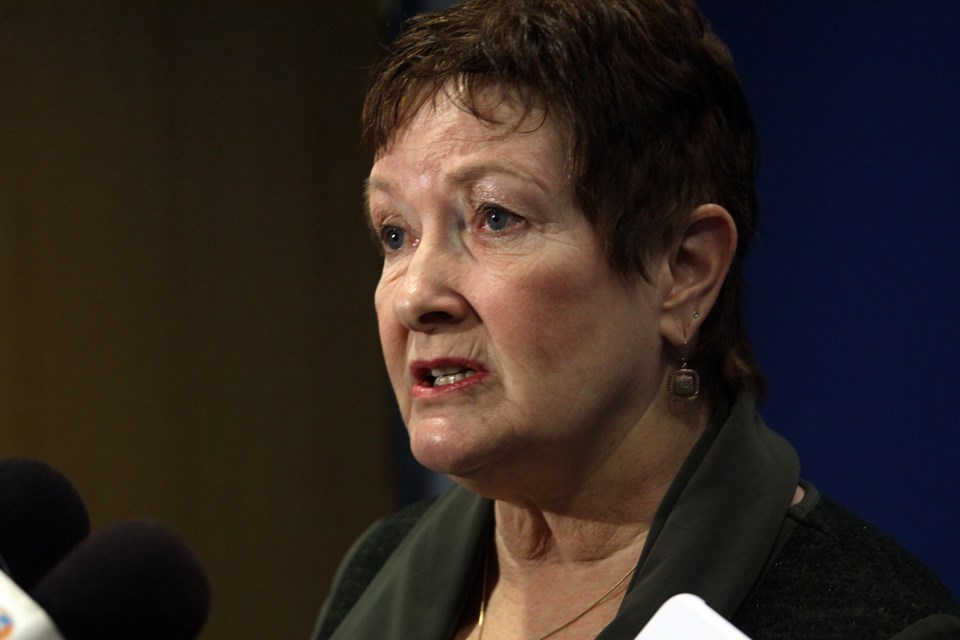THUNDER BAY – The conclusion of the Ontario Civilian Police Commission’s probe of the city police services board has been pushed back into the second half of 2018.
The investigation of the Thunder Bay Police Services Board, being conducted by Sen. Murray Sinclair, is now not expected to be finished until Aug. 31, five months after its most recent estimated completion date.
Jackie Dojack, chair of the Thunder Bay Police Services Board, said she was notified of the delay in a letter that was received late last week.
“I think anybody who is under investigation always likes to have the investigation finished as quickly as possible,” Dojack said following the board’s monthly meeting on Tuesday morning.
“We were looking forward to a March 31 completion date. We’ve been told it will now be Aug. 31. It’s not our investigation so we’ll continue to work with Sen. Sinclair in whatever way we can to assist in that investigation.”
Sinclair, who previously chaired the federal government’s Truth and Reconciliation Commission, was appointed by the commission in July to undertake the investigation after Indigenous leaders raised concerns over the board's ability to oversee the police service and declared there was a "crisis of confidence in policing" in Thunder Bay related to death investigations and questions of systemic racism. Sinclair has the authority to make recommendations to the civilian police commission, the board and the provincial Ministry of Community Safety and Correctional Services.
The probe of the board is taking place concurrently with a systemic review of the Thunder Bay Police Service being conducted by the Office of the Independent Police Review Director relating to Indigenous death and missing persons investigations.
Dojack said the letter explained Sinclair wanted to wait until the conclusion of the OIPRD review before completing his report. Board members have fully cooperated with Sinclair’s investigation to date, she added.
“Anything he’s asked from us we’ve done,” Dojack said. “He met me first individually as board chair and then he met with the entire board. He has met with a number of other people in the community. That’s been our only involvement right now. He is going to schedule individual meetings with each board member and those have not yet been scheduled.”
Earlier this year Sinclair presented an interim report where he acknowledged “there are profoundly serious concerns about police handling of death and missing persons’ investigations in relation to Indigenous people in Thunder Bay and other acts of overt racism by members of the public.”
Sinclair, a former Associate Chief Justice of the Provincial Court of Manitoba and judge on the Court of Queen’s Bench of Manitoba, identified a lack of emphasis on Indigenous issues in the most recent police service’s business plan that was approved by the board.
“In Thunder Bay, there has been a noticeable decline in terms of the proportion of the business plan dedicated to addressing Indigenous issues when compared to business plans in place in 2008-2010, and the current 2015-2017 plan. Business planning is important in the context of this investigation because it is an activity that establishes the priorities of the Board and the (police service),” Sinclair noted in his interim report.
“The apparent decline of attention to Indigenous issues—in a context of ongoing concerns about a racist climate in Thunder Bay and the series of deaths of Indigenous people—will be a significant aspect of the investigation.”
Dojack attributed that finding to miscommunication and said it was not reflective of the board’s stance on the priority of Indigenous issues.
“We feel that we need to explain that a little more to him, the comparison,” Dojack said. “It was a different style of writing a business plan. It wasn’t that there really was any less attention to Indigenous issues, although simply reading what we read, we can see how he could have interpreted it that way.”
